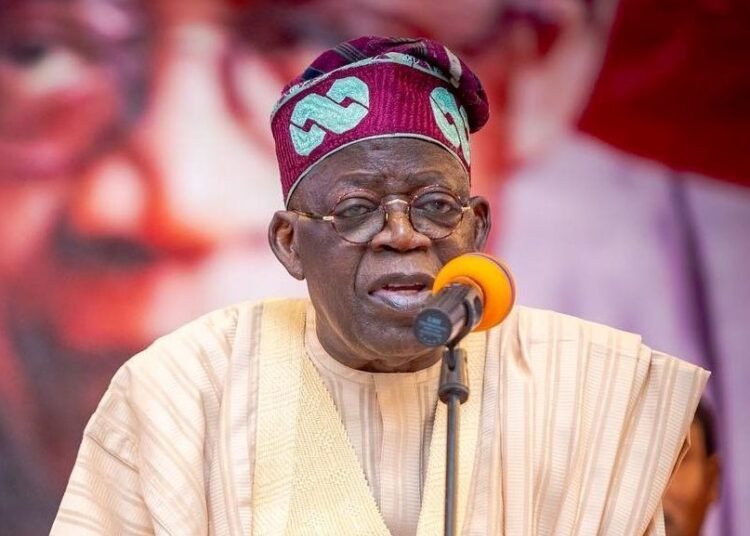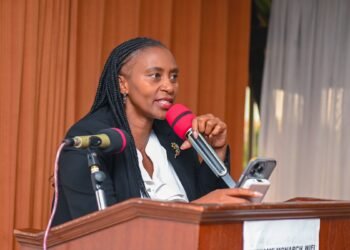The Independent National Electoral Commission has declared the All Progressives Congress presidential candidate, Bola Tinubu, as the president-elect.
Former Lagos State governor Tinubu, 70, received 8,794,726 votes to win the 2023 presidential election, and was subsequently proclaimed the winner.
In the International Collation Centre in Abuja in the early hours of Wednesday, Tinubu’s victory was declared by INEC Chairman Professor Mahmood Yakubu.
Tinubu triumphed against rival candidates Atiku Abubakar of the Peoples Democratic Party, Peter Obi of the Labour Party, and Rabiu Kwankwaso of the New Nigeria Peoples Party.
The three front-runners for president each won 12 states, although Kwankwaso only won Kano State.
Atiku, a former vice president and his closest rival, lost to Tinubu by a margin of no less than 1.8 million votes.
Reports that the 2023 presidential election is the first time that Tinubu contested for the nation’s top job.
The former senator, who served as governor of Lagos State for two terms until leaving office in 2007, is credited with organizing the alliance that deposed the PDP in 2015. In recent years, he has expanded his influence outside of the South-West.
Aside from Tinubu; Obi; Atiku, and Kwankwaso, other candidates that gunned for the nation’s oval office include Dumebi Kachikwu of the African Democratic Congress; Kola Abiola, People’s Redemption Party; Omoyele Sowore, Africa Action Congress; Adewole Adebayo, Social Democratic Party; Malik Ado-Ibrahim, Young Progressive Party; Prof Christopher Imumulen, Accord Party; Prof Peter Umeadi, All Progressives Grand Alliance; and Yusuf Mamman Dan Talle, Allied Peoples Movement.
The list also includes Hamza Al-Mustapha, Action Alliance; Sani Yusuf, Action Democratic Party; Nnnadi Osita, Action Peoples Party; Oluwafemi Adenuga, Boot Party; Osakwe Felix Johnson, National Rescue Movement; and Nwanyanwu Daniel Daberechukwu, Zenith Labour Party.
A tally of the votes announced by electoral officials from the 36 states and the Federal Capital Territory, Tinubu, in Borno, polled 252,282 votes across the 27 local government areas and was declared the winner by the state Collation Officer, Prof. Jude Rabo.
Atiku and Obi only managed to receive 190,921 and 7,205 votes, respectively, while Kwankwaso received 4,626.
Tinubu received 231,591 votes from 23 LGAs in Rivers State, while the LP received 175, 071 votes and the PDP received 88, 468 votes.
The Federal Capital Territory, however, proved to be a game changer for the Labour Party, which rocked both Tinubu and his PDP rival.
Due to his popularity in Abuja, Obi received 281,717 votes, while the former governor of Lagos and the former vice president tied for the remaining positions with 90,902 and 74,149 votes, respectively. Kwankwaso received 4,517 votes as well.
Yet in several northern and middle belt areas, such as Zamfara, Kwara, Kogi, Benue, and Kogi States, Tinubu made up for his losses.
The APC received 310,468 votes in Benue, pushing the LP (308,372), PDP (130,081), and NNPP (4,740) to second, third, and fourth place respectively.
He received 298,396 votes in Zamfara State, compared to 1,660 for the LP, 4,044 for the NNPP, and 193,978 for the PDP.
As anticipated, Obi outperformed rival candidates in Plateau, winning with 466,272 votes to the APC’s 307,195, the PDP’s 243,808, and the NNPP’s 8,869 votes.
The states won by Tinubu so far include Ogun, Oyo, Ondo, Kwara, Ekiti, Kogi, Benue, Zamfara and Jigawa, while Atiku emerged victorious in Bauchi, Yobe, Gombe, Kaduna, Kebbi, Bayelsa, Adamawa and Akwa Ibom.
Obi, on the other side, won the FCT as well as the states of Lagos, Enugu, Cross River, Nasarawa, Imo, Anambra, Abia, and Anambra.
APC received 8,794,726 votes in the final tally, compared to PDP’s 6,984,520, LP’s 6,101,533, and NNPP’s 1,496,687.
Declaring Tinubu as the winner, the INEC boss said, “That Tinubu Bola Ahmed of the APC, having satisfied the requirements of the law is hereby declared the winner and returned elected.”






























































